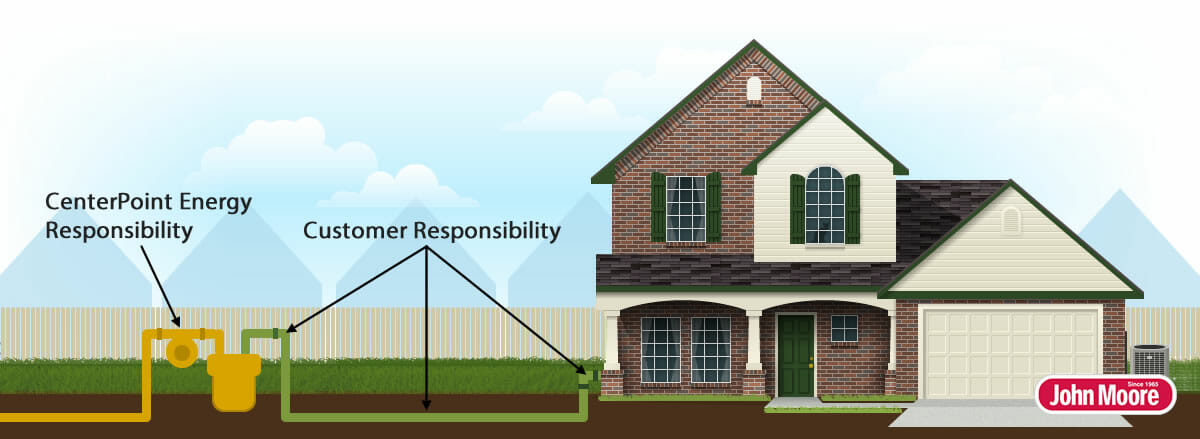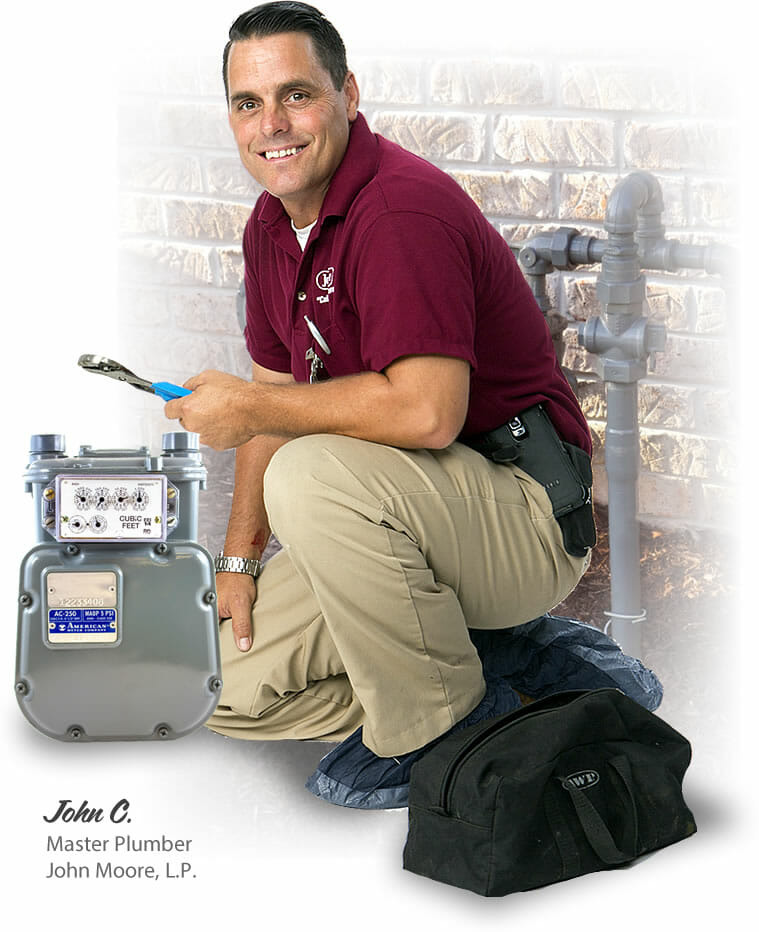Visual Gas Pipe Line Inspection
Have a licensed John Moore technician inspect your natural gas piping today!
Including ON-SITE Estimates!*
Did you know that as a homeowner you are responsible for maintaining buried natural gas piping from the gas meter to your home and natural gas equipment?
If your natural gas meter is located away from your home and your piping runs underground, then you are responsible for maintaining the piping and any natural gas equipment. Natural gas piping can potentially corrode and create an unsafe environment, but luckily, our technicians know how to spot problems with your piping and solve them before they become major issues.
Where does Centerpoint end and your responsibility begin?


Maintaining and inspecting the gas lines from your home to the main supply is crucial for safety and efficiency.
Here are important factors to consider and reasons why an inspection might be necessary:
- Age of the Pipelines: Older pipes are more prone to corrosion, cracks, and leaks, making regular inspections critical to ensure they are functioning properly and safely.
- Material of the Pipelines: Different materials have different lifespans and vulnerabilities. For example, steel can corrode, and certain plastics can become brittle over time.
- Ground Movement: Natural shifts in the earth or construction nearby can cause pipes to move or become damaged. An inspection can identify if any recent earth movements have affected your gas lines.
- Regulatory Compliance: Local laws may require regular inspections to comply with safety standards. This ensures your system adheres to current safety regulations.
- Visible Rust or Damage: If you notice visible signs of wear, such as rust or physical damage to the pipe, it's crucial to have an inspection to assess the extent of the issue.
- Unusual Gas Bills: A sudden increase in your gas bill may indicate a leak or inefficiency in your system, necessitating an inspection.
- Nearby Construction Activities: Construction near your property can accidentally damage underground gas lines. After such activities, it's wise to check for any potential damage.
- Vegetation Overgrowth: Roots from large trees or shrubs can sometimes interfere with gas lines, leading to leaks or blockages.
- Smell of Gas or Hissing Sounds: These are immediate signs of a gas leak and require urgent inspection and repair.
- Installation of New Appliances: If you're adding or changing appliances that use gas, an inspection ensures that your lines can handle the new demand safely.
Why Inspections are Necessary?
- Safety: The primary reason for an inspection is safety. Gas leaks can lead to fires, explosions, and carbon monoxide poisoning.
- Efficiency: Ensuring that your gas lines are in good condition helps maintain the efficiency of your gas appliances, saving you money and energy.
- Preventative Maintenance: Regular inspections can identify and fix small issues before they become major problems, saving you from costly repairs and ensuring continuous service.
- Peace of Mind: Knowing that your gas lines are in good condition can provide peace of mind and ensure the safety and comfort of your home
It's best to have a qualified professional conduct these inspections to ensure thoroughness and safety. Regular maintenance and awareness can help prevent most gas-related incidents in the home
